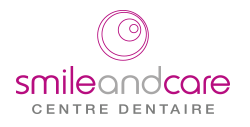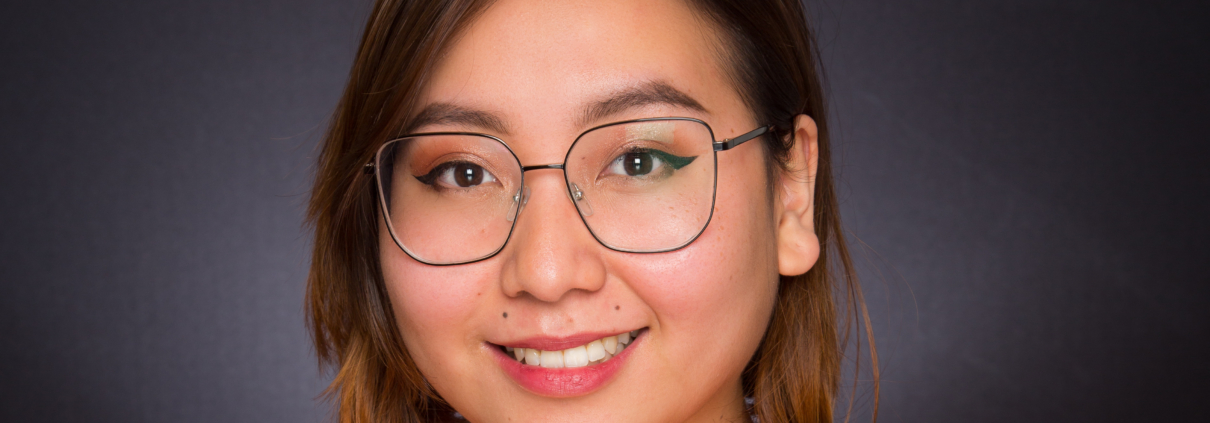Interview
“At Smile and Care, dentists and dental assistants always prioritise dialogue to find solutions together.”
Julia Orteza, Head Dental Assistant
Julia Orteza is the Head Dental Assistant at Smile and Care Eaux-Vives. Born in the Philippines, she came to Switzerland at the age of nine as her father worked with the United Nations in Geneva. She shares with us her motivation for her job.
What are the tasks of a dental assistant?
I assist the dentists in their treatments, sterilize the instruments, greet patients, and deal with administration. My role is often to soothe the patients as soon as they arrive (smile). Not everyone likes going to the dentist. I’m there to listen to them and help them relax.
You are Head Dental Assistant. What are your responsibilities?
I supervise two certified dental assistants and two apprentices. I manage the scheduling and team organisation. While every doctor has an assistant, we have a flexible work dynamic. A dental assistant can work with all the dentists – except for surgical dentistry, which is more specific. I also place orders for dental supplies. I was previously in charge of the Smile and Care centre in Grand-Saconnex in Sonnex, where there is a pool of six dental assistants.
You’re now based at the Smile and Care centre in Eaux-Vives. Was this a big change for you?
I was of course happy to join the new centre in Eaux-Vives; the equipment is new and high-tech, it’s bright and easily accessible. But the team spirit remains the same, and I really like my job for that reason. We are versatile and flexible, and really work as a team. I make sure that my colleagues feel supported during the holidays, and we find solutions with my colleague Allison in Sonnex.
What was your background before Smile and Care?
After the “Cycle d’Orientation”*, I attended a business school for a year, but it just wasn’t for me. I like the field; I like working more manually. I love handling dental instruments! In my family, many of us work in the area of personal care. I was then able to do a pre-apprenticeship in a dental clinic, followed by a three-year apprenticeship. I specialised in orthodontic care.
I was then lucky enough to join the Smile and Care team, which offers me the variety I seek. At Smile and Care, people are important: we’re not guided by volume, but by quality. We are neither big nor small: we’re just the right size.
What did you gain from this training?
I have to admit that when I was younger, I was really shy. This job has helped me to open up to others, to speak with patients – be they adults or children. It’s been a real path of personal growth.
What do you like most about your job?
The variety, definitely! No two days are alike. And the contact with the patients, of course! We form a harmonious team that enjoys working together, and we always prefer dialogue as a way to finding solutions together.
What qualities do you think are essential for a Head Dental Assistant?
You have to be able to handle stress well, find quick solutions, and listen to patients, doctors, and assistants. Punctuality is also a prerequisite.
What types of dental care or techniques do you prefer to perform?
I have a soft spot for orthodontic care, as I enjoy working with children and young adults. After three years of experience and training in orthodontics, I’m now very familiar with the instruments, products, and techniques. Orthodontics is an exciting field!
Before or after a dental treatment, what exchanges do you have with dentists?
Before greeting a patient, we look over their file together, and the dentist explains what’ll be done during the appointment. And most of the time, we also debrief afterwards, so as to anticipate future consultations.
How do you see your professional development?
I would like to stay at Smile and Care for several years, because I love the team – whether it grows or stays as is. I’m happy to get up and go to work every morning!
*The “Cycle d’Orientation” (CO) is the first part of the secondary education system in place in the cantons of Geneva, Fribourg, and Valais. It is divided into three years (9th – 11th) and marks the end of compulsory schooling at about 15-16 years of age.







